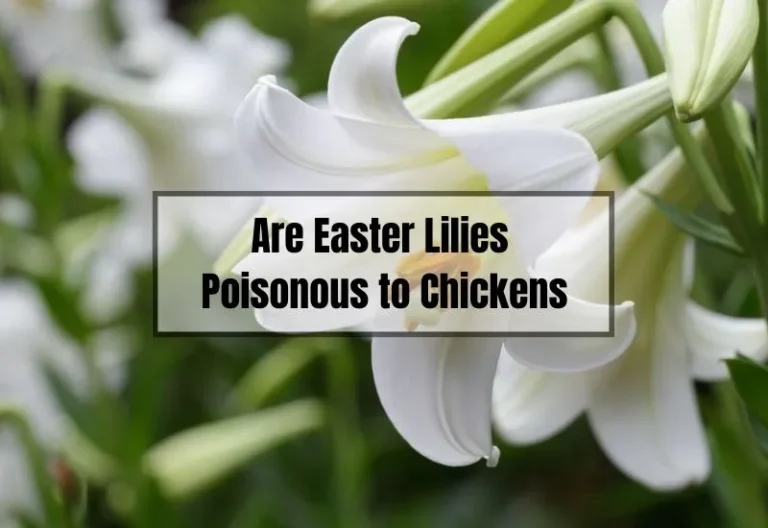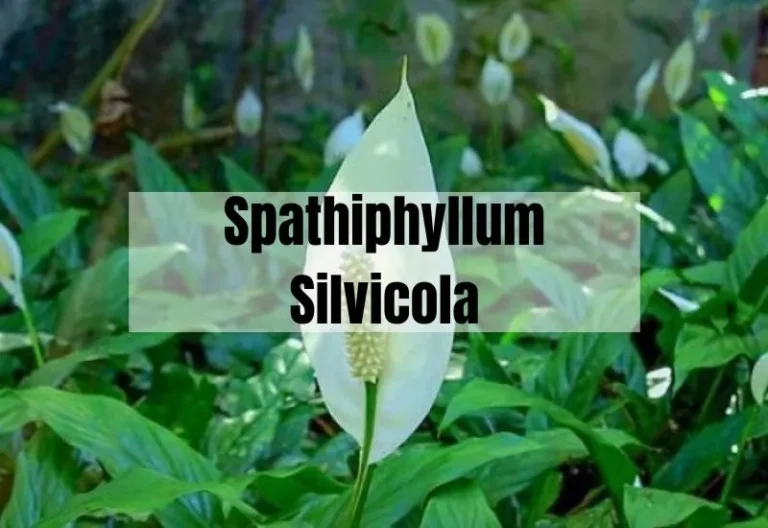Do Rabbits Eat Asiatic Lilies? A Guide to Protecting Your Garden
Do you love the look of Asiatic lilies in your garden? These beautiful flowers come in a variety of colors and are a popular choice for gardeners.
But if you’re a bunny lover, you might be wondering: do rabbits eat Asiatic lilies? Unfortunately, the answer is yes. Rabbits find these flowers to be quite tasty, which can be frustrating for gardeners who want to enjoy their blooms.
Asiatic lilies are a favorite food of rabbits, along with many other garden plants. These animals are herbivores, which means they eat only plants, and they can quickly make a meal out of your garden.
If you have a rabbit problem in your yard, it’s important to take steps to protect your plants and keep these critters away. But first, let’s take a closer look at why rabbits are so drawn to Asiatic lilies.
Key Takeaways
- Rabbits do eat Asiatic lilies, which can be frustrating for gardeners.
- Asiatic lilies are a favorite food of rabbits, who are herbivores that eat only plants.
- To protect your garden from rabbits, you can choose safe plants, rabbit-proof your garden, or use natural repellents.

Do Rabbits Eat Asiatic Lilies?
Okay, let’s cut to the chase. I’m sorry to say it, but yes, rabbits do eat Asiatic lilies. I know, right? It’s like finding out your favorite ice cream flavor is also your best friend’s favorite. It’s just not fair! So, what makes these lilies so appealing to our hopping friends?
Asiatic lilies are a buffet of deliciousness for rabbits. They’re drawn to the tender leaves and stems, as well as the juicy bulbs that grow beneath the soil. These little pests can cause significant damage to your prized lilies by munching on the foliage and flowers. Before you know it, your once-lush garden could look like a war zone.
How to Recognize Rabbit Damage
Now that we know rabbits love to feast on Asiatic lilies, it’s essential to recognize the signs that they’ve been nibbling on your plants. Here are a few clues to look out for:
Signs of Rabbits in your Garden
- Rabbit droppings: Look for small, round, dark-colored pellets scattered around your garden.
- Rabbit tracks: Check for tiny paw prints, which are typically 1-1.5 inches long with a Y-shape.
Specific Indicators that Rabbits have Eaten your Asiatic Lilies
- Cleanly cut stems: Rabbits have sharp teeth that can cut through plant stems like a pair of scissors, leaving a clean edge.
- Chewed leaves: Look for irregular, jagged edges on leaves, indicating that a rabbit has been nibbling.
Asiatic Lilies and Their Impact on Rabbits
Asiatic lilies are beautiful flowers that can add a pop of color to any garden. However, if you have rabbits in your area, you may be wondering if they will eat your lilies. The truth is, rabbits love to eat Asiatic lilies, and they can cause significant damage to your plants if left unchecked.
Rabbits are herbivores and enjoy eating a variety of plants, including flowers, vegetables, and grasses. Asiatic lilies are no exception, and rabbits will happily munch on the leaves, stems, and flowers of your plants.
If you have rabbits in your area, it’s essential to take steps to protect your Asiatic lilies from damage. Here are some tips to help keep your plants safe:
- Plant your lilies in raised beds or containers: Rabbits are less likely to jump up into raised beds or containers to reach your plants.
- Use physical barriers: You can use chicken wire or mesh fencing to create a barrier around your lilies. Make sure the barrier is at least two feet high to prevent rabbits from jumping over it.
- Use repellents: There are a variety of rabbit repellents available, including sprays and granules. These products use scents and tastes that rabbits find unpleasant to deter them from eating your plants.
- Plant rabbit-resistant plants: If you’re looking for plants to add to your garden that rabbits are less likely to eat, consider planting daffodils, alliums, or lavender.
It’s important to note that while these methods can be effective, they are not foolproof. Rabbits are persistent creatures and may find a way to get to your lilies despite your best efforts.
However, by taking these steps, you can reduce the likelihood of damage to your plants and enjoy your beautiful Asiatic lilies all season long.
Tips for Protecting your Asiatic Lilies from Rabbits
Don’t worry, my gardening pals! I’ve got your back. Here are some tried-and-true methods to keep rabbits away from your precious Asiatic lilies:
Fencing Options
- Materials and height recommendations: Use chicken wire or hardware cloth to create a barrier around your lilies. Ensure the fence is at least 2-3 feet high to prevent rabbits from hopping over it.
- Burying fences to prevent digging: Rabbits are notorious diggers, so bury the fence at least 6-12 inches deep to stop them from tunneling underneath.
Repellents and Deterrents
- Commercial products: There are several rabbit repellents available on the market that can be applied to your plants or the surrounding area. Just be sure to follow the instructions carefully.
- Homemade remedies: You can create a DIY repellent using ingredients like garlic, hot pepper sauce, and dish soap. Mix them with water and spray it on your plants.
- Pros and cons of using repellents: While repellents can be effective, they may require frequent reapplication and can sometimes be washed away by rain.
Planting Rabbit-resistant Plants
Examples of rabbit-resistant plants: Some plants are less appealing to rabbits, like lavender, foxglove, and marigolds.
Creating a barrier with these plants: Plant these rabbit-resistant varieties around your Asiatic lilies to create a natural barrier. This may deter rabbits from venturing into your lily patch and help protect your prized blooms.
Safe Plants for Rabbits
As a responsible pet owner, it’s important to ensure that your furry friend is not consuming anything that could harm them.
While rabbits are known to be herbivores, not all plants are safe for them to eat. Here are some safe plants for rabbits that you can add to their diet.
Vegetables
Vegetables are a great source of vitamins and minerals for rabbits. Here are some safe vegetables that you can feed your rabbit:
| Vegetable | Notes |
|---|---|
| Carrots | Rich in vitamin A |
| Broccoli | High in vitamin C |
| Bell peppers | Rich in vitamin C |
| Zucchini | Rich in vitamin C |
| Cucumber | High in water content |
Fruits
Fruits can be a great treat for rabbits as they are high in natural sugars. However, it’s important to feed fruits in moderation as they can cause digestive issues if consumed in large quantities. Here are some safe fruits for rabbits:
| Fruit | Notes |
|---|---|
| Apples | Remove seeds and core |
| Strawberries | High in vitamin C |
| Bananas | High in potassium |
| Blueberries | High in antioxidants |
| Pineapple | Rich in vitamin C |
Herbs
Herbs are a great way to add variety to your rabbit’s diet. Not only do they add flavor, but they also have medicinal properties. Here are some safe herbs for rabbits:
| Herb | Notes |
|---|---|
| Basil | Rich in antioxidants |
| Cilantro | High in vitamin C |
| Dill | Aids in digestion |
| Mint | Helps with respiratory issues |
| Parsley | Rich in vitamin C |
It’s important to note that while these plants are generally safe for rabbits, every rabbit is different and may have individual dietary needs or allergies.
Always introduce new foods gradually and monitor your rabbit’s health for any adverse reactions. If you have any concerns about your rabbit’s diet, consult with a veterinarian who specializes in exotic pets.
Rabbit-Proofing Your Garden
Asiatic lilies are beautiful flowers that can add color and fragrance to your garden. Unfortunately, they are also a favorite snack of rabbits.
If you want to keep your lilies safe from these furry pests, you’ll need to take some precautions. Here are some tips for rabbit-proofing your garden:
Fencing
The most effective way to keep rabbits out of your garden is to install a fence. A fence should be at least 2 feet high and buried at least 6 inches in the ground to prevent rabbits from burrowing underneath it.
You can use chicken wire or hardware cloth to construct the fence. Make sure the fence is sturdy and has no gaps or holes that rabbits can squeeze through.
Repellents
If you don’t want to install a fence, you can use repellents to keep rabbits away from your lilies.
There are many commercial rabbit repellents available, but you can also make your own using household items. Here are some natural repellents that you can try:
- Blood meal: Sprinkle blood meal around your lilies. The smell of blood will deter rabbits from coming near.
- Hot pepper spray: Mix 1 tablespoon of hot pepper sauce with 1 quart of water. Spray the solution on and around your lilies.
- Human hair: Place clumps of human hair around your lilies. The smell of humans will scare rabbits away.
Companion Planting
Companion planting is the practice of planting certain plants together to repel pests or attract beneficial insects.
Some plants are known to repel rabbits, so you can plant them alongside your lilies to keep the rabbits away. Here are some plants that rabbits don’t like:
- Marigolds
- Lavender
- Sage
- Thyme
Other Precautions
Here are some other precautions you can take to keep rabbits away from your lilies:
- Keep your garden clean and free of debris. Rabbits like to hide in tall grass and piles of leaves.
- Trim any low-hanging branches or shrubs that rabbits can use as cover.
- Make sure there are no gaps or holes in your garden fence.
By taking these precautions, you can keep your Asiatic lilies safe from rabbits and enjoy their beauty all season long.
Frequently Asked Questions (FAQs)
How fast do rabbits multiply and cause damage to my garden?
Rabbits are known for their rapid reproduction. A single pair can produce multiple litters in one year, each with several babies. This quick increase in population can lead to a significant amount of damage to your garden in a relatively short period of time.
Are there any natural predators I can attract to keep rabbits away?
Encouraging natural predators, such as owls, hawks, and even snakes, can help keep rabbit populations in check. However, inviting predators into your garden can come with its own set of issues, so consider this option carefully.
Can I use live traps to remove rabbits from my garden?
Live traps can be an effective way to remove rabbits from your garden. Make sure to check local regulations and guidelines regarding trapping and relocating rabbits, as this may vary depending on your location.
Are there other pests that could be eating my Asiatic lilies?
Yes, there are other pests that can cause damage to your Asiatic lilies. These may include slugs, snails, and even deer. Make sure to monitor your garden closely to identify the specific culprits causing damage to your plants.
What should I do if rabbits keep coming back despite my efforts?
If rabbits continue to feast on your Asiatic lilies despite your best efforts, consider consulting with a professional pest control service. They can provide additional solutions and strategies for keeping rabbits out of your garden.
Conclusion
So there you have it, fellow gardeners! Rabbits do indeed love to munch on Asiatic lilies, but that doesn’t mean we can’t take action to protect our precious plants. With some effort and determination, you can keep your garden looking fabulous and free of those pesky little hoppers.
Remember, gardening is all about patience and perseverance. It’s totally worth it when you can finally sit back and admire your vibrant, rabbit-free garden. Happy gardening, everyone!






